The 3,000-Year-Old Antidote to Moral Collapse
Hostages freed. Hamas executes. NYC’s next mayor? Tucker’s moral spiral. My Yom Kippur reflections reveal the ancient moral anchor that can still save the West.
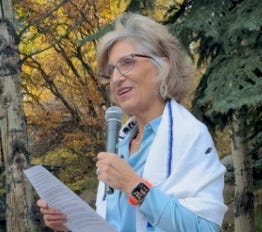
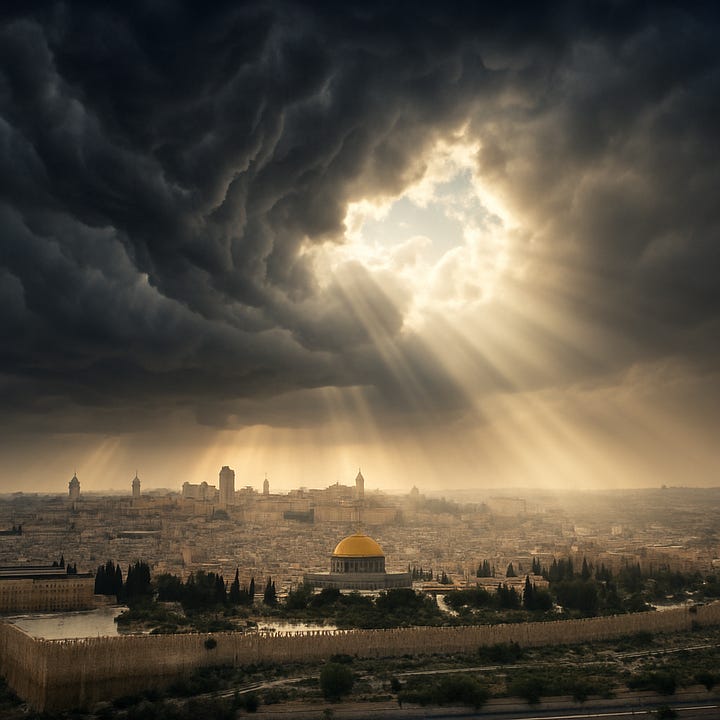
“Everyone thinks the greatest miracle is to resurrect the dead.
But the real miracle is to resurrect the living — to live the life we should be living, for the sake of our souls and for humanity.”
— Kotzker Rebbe
I shared these words on Yom Kippur — before the Gaza Peace Deal and before the hostages came home in tears of joy that lit up the world. Proof that light can still break through darkness, carrying us from chaos to blessing.
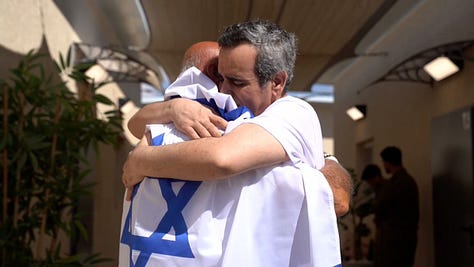

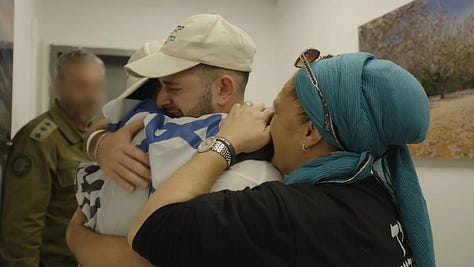
But even amid the ceasefire, Hamas’s public executions of innocent Palestinians reveal its true nature. The evil that once hid behind propaganda now stands exposed. The lies that accused Israel of genocide are collapsing under the weight of truth.
Yet new storm clouds are gathering — this time over America. With anti-capitalist and jihadist sympathizer Zohran Mamdani poised to become mayor of the world’s most influential city, viral images like this one capture the moral inversion of our time.
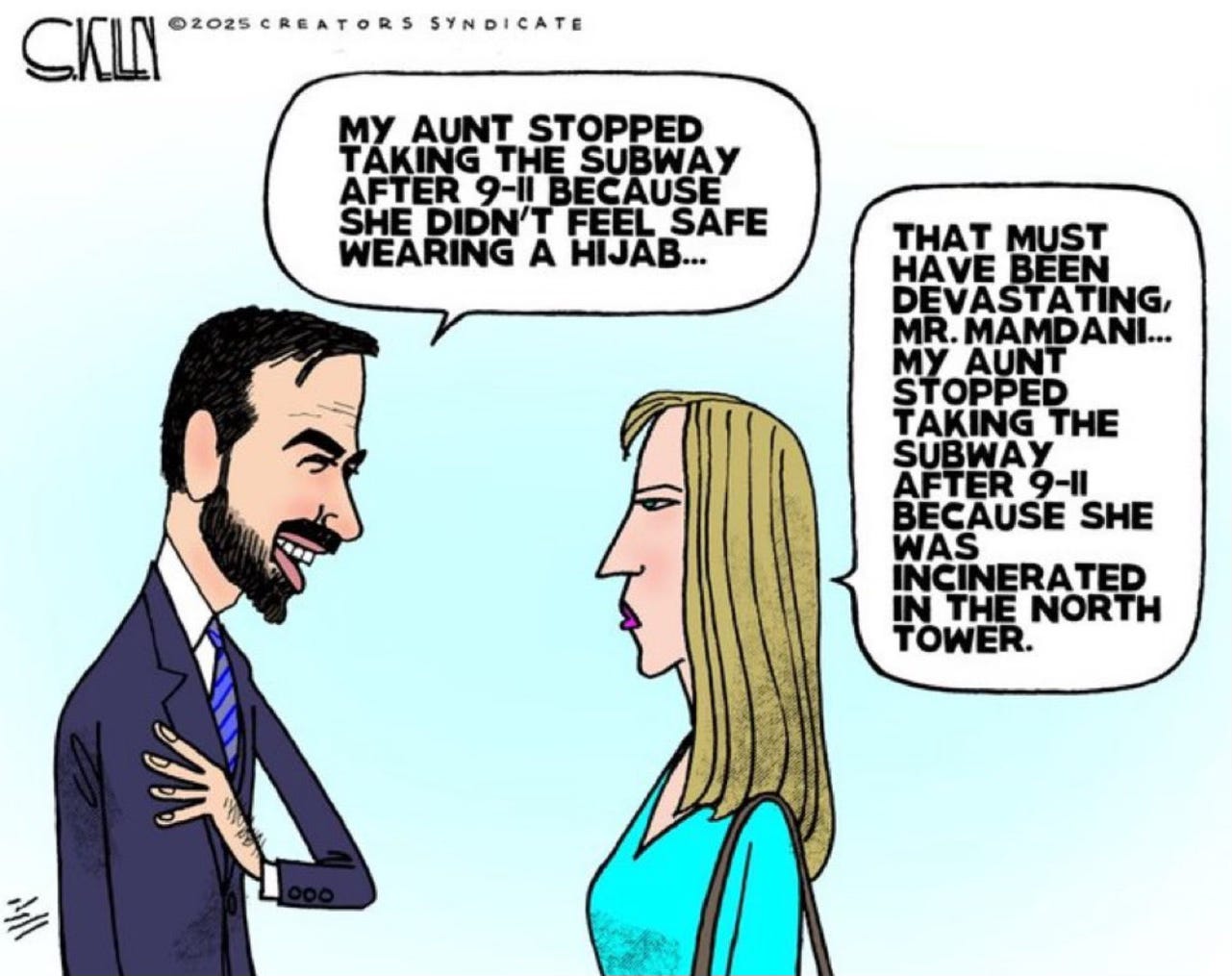
Meanwhile, media star Tucker Carlson declared his “hatred” for Christian Zionists in an interview with bile-spewing, Hitler-admiring Nick Fuentes. With unflinching moral clarity, Ben Shapiro devoted an entire show to exposing Fuentes’s vile rhetoric and Carlson’s descent into moral confusion — watch it here.

With our Judeo-Christian heritage under assault, moral confusion is spreading — and it’s coming for our freedom, as Margaret Thatcher warned.
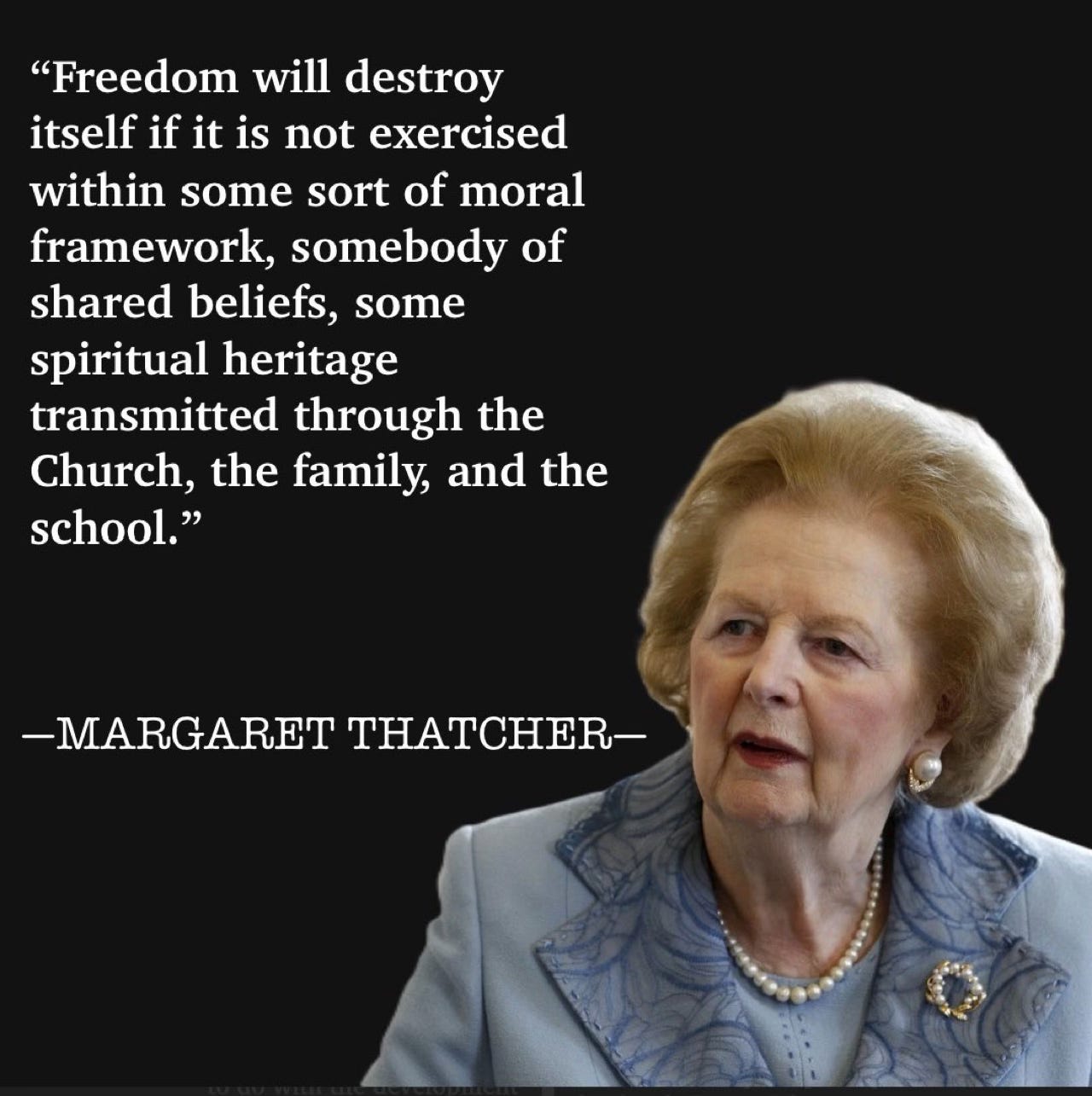
In my earlier essay, Antisemitism and Anti-Americanism Are Rising, I wrote:
“At 250 years old, America remains the world’s greatest experiment in self-critical, multiracial democracy. The truths declared in 1776 united a divided people — and built the freest, most decent, and most prosperous nation in history. Reviving those founding ideals can unite us again today.”
These Yom Kippur reflections were written in that spirit — revealing what sustained the Jewish people for 3,000 years….
…and what can sustain America today.
Keep reading for the full sermon — the most powerful yet, I was told!
Below is the video of my Yom Kippur reflections. The lightly edited text follows.
Filmed on Yom Kippur, October 2, 2025, as part of our annual High Holiday gathering with friends and family — co-led with my gifted spiritual partner and friend, Hilary — what we now call Temple HilMel.
“How Ancient Wisdom Can Carry Us From Chaos to Blessings”
In my Rosh Hashanah remarks, I closed with a parable that struck a chord with many of you.
For those who weren’t here, the story goes like this:
“If you’re carrying a cup of coffee and someone bumps you, why do you spill coffee?”
The class answers, “Because someone bumped me.”
“No,” he says. “You spilled coffee because coffee was in your cup. When life shakes you—as it always will—whatever you’ve been carrying in your cup is what spills out.”
The High Holidays offer us a kind of cup washing – a soul cleansing we call teshuvah – because the truth is, we all carry things we’d rather not spill.
On Rosh Hashanah I asked you to consider: What’s in your cup?
Today, on Yom Kippur, I ask: How will we choose to fill our cups as we begin a new year of possibilities?
Refilling with Faith
This has been another hard year for the Jewish people. Israel is at war with a genocidal enemy. Students are afraid on campus. And here at home, Jews have been targeted simply for being who they are – a young couple shot for being Zionists, a Holocaust survivor killed in Boulder, and today – on our holiest of days – two Jews murdered at a synagogue in Manchester, England.
Small wonder that fear and anger have spilled from our cups. As some of you admitted on Rosh Hashanah, raging antisemitism has made you tighten up, even hide your Jewish identity.
But Yom Kippur is the day we steady our hands and refill our cups with the tenets of our tradition: to do justly, to love mercy, and to walk humbly with your God — as the prophet Micah said so timelessly.
So, what does that look like when the fast is over and we return to our daily lives?
Turning Vices into Virtues
It means choosing to grow from mistakes so we can project light into a dark world. And we can only grow if we recognize our failings and decide to turn vices into virtues, and virtues into habits. That is how we make the world better — like the Chofetz Chaim taught, changing the world begins with changing ourselves.
Benjamin Franklin, about whom we read on Rosh Hashanah, understood this. In his “project for moral perfection,” he realized he had a bad habit: interrupting people. So, he practiced silence, one conversation at a time. Gradually, restraint turned into curiosity, curiosity into respect, until listening became his reflex – one of the traits that made him a great statesman.
A vice became a virtue, and a virtue became a habit.
I think too of Gerda Klein, a Holocaust survivor who realized she complained too much about little things. She vowed that whenever she felt a complaint coming, she would choose a word of gratitude instead. What began as effort became instinct — and gratitude became her survival strategy for the rest of her life.
The Mirror and the Change
How do we begin that kind of change? Sometimes with a mirror. Another parable tells of a monk who carried a mirror everywhere, constantly looking at it. A priest scolded him for vanity. The monk replied,
“I use it in times of trouble. When I look into the mirror, it shows me the source of my problems – and the solution.”
Yom Kippur is that mirror. It tells us: Teshuvah is real. We can change. Families can change. Even history can change when we choose what we carry.
And isn’t that what we’re seeing in the world today – dramatic changes in the Middle East once thought impossible now suddenly within reach?
So rather than tucking our Jewish stars inside our shirts or lowering our voices in public, today we reclaim the magnificence of our tradition. Today is the day we hold the mirror steady and remember who we are.
Living as a Blessing
When I hold up that mirror to myself and to Hilary, we see people who believe that making Judaism more accessible and joyful can ripple outward into the world.
Connected to the life-affirming tools of Judaism, each of you can emerge with a cleaner soul and a clearer path for making your life a blessing – which is all God really wants from us.
When I hold up that mirror to you, I see a people whose calling is not to justify our right to exist, but to live as a blessing, as Rabbi Jonathan Sacks taught.
That is how our ancestors outlasted empires and outshone hatred.
And that is how we will, too.
Outlasting Empires
Marveling that – despite millennia of persecution – the Jewish people endured as history’s longest-living people, President John Adams wrote that the Jews
“have contributed more to civilized man than any other nation. They have given religion to three-quarters of the globe and have influenced the affairs of mankind more than any other nation, ancient or modern.”
The historian Paul Johnson echoed this, insisting that without the Jews,
“the world might have been a much emptier place.”
To the Jewish people, humanity owes nothing less than the moral architecture of civilization: equality before the law, the sanctity of life, human dignity, redemption and responsibility, and peace as an ideal.
Rabbi Jonathan Sacks put it this way:
It is as if God’s voice within us says, “You are in this situation, difficult though it is, because there is a task to perform, a strength to develop, a blessing to uncover. For I have chosen you to show the world that out of suffering can come great blessings — if you wrestle with it long enough, and with unshakeable faith.”
Hasn’t that always been the pattern of our people’s story?
Consider these words I recently came across:
When God wanted to make David a king, He didn’t give him a crown – He gave him Goliath.
When God wanted to make a leader out of Moses, He didn’t give him a stage – He gave him a wilderness.
When God wanted to raise Joseph to the palace, He didn’t give him a shortcut – He gave him prison.
When God wanted to make a queen out of Esther, He didn’t give her comfort – He gave her crisis.
God doesn’t give us what we want. He gives us what we need.
Faith in a Fractured World
This past year has reminded us how heavy — and how holy — it is to carry our calling.
Since October 7th, every Jewish act of self-defense has been twisted into an accusation.
On campuses, in protests, even in the halls of government – and at the United Nations itself – the world’s anger turned toward us once again.
But Yom Kippur calls us to measure our worth not by the world’s accusations, but by God’s promise in Genesis:
“I will bless those who bless you, and whoever curses you I will curse; and all peoples on earth will be blessed through you.”
And look at what is happening before our eyes.
For all the rage directed at Israel, her legitimacy has only grown.
Out of the horror of October 7th has come an extraordinary realignment.
What Israel’s enemies meant for destruction has instead become a catalyst for blessing.
Hatred shrinks the world.
Partnership, dialogue, and peace enlarge the human spirit.
And here at home, we too must enlarge it — by wearing our Stars of David proudly and by speaking up thoughtfully and graciously, so that our lives testify to the blessing of being Jewish.
The Canopy of Peace
Last night at Kol Nidre, when we prayed the Hashkiveinu, it struck me:
Could this be the beginning of that ancient canopy of peace we ask God to spread over us?
For two thousand years we have prayed – “Spread over us Your shelter of shalom.”
At long last, are we watching its first threads begin to unfurl?
Resurrecting the Living
The Kotzker Rebbe once said:
“Everyone thinks the greatest miracle is to resurrect the dead.
But the real miracle is to resurrect the living — to live the life we should be living, for the sake of our souls and for humanity.”
Rabbi David Wolpe tells a story that brings this miracle of Jewish commitment and resilience to life:
In Israel’s Valley of Hinnom — Gehenna — the very place ancient Canaanites practiced child sacrifice, archaeologists in 1979 uncovered two silver amulets, dating back more than 500 years older than the Dead Sea Scrolls.
Inside was the oldest surviving text of Torah ever found – the Priestly Blessing – still spoken by parents to their children on Shabbat, and by rabbis at weddings, at new beginnings and in synagogues:
“May God bless you and keep you.
May God’s face shine upon you and be gracious to you.
May God lift up His face toward you and grant you peace.”
Think about that.
From the valley that gave the world its image of hell, the oldest words of Torah we possess are words of peace.
For thousands of years, that has been our story: out of horror, we summon blessing; out of despair, we create hope; out of death, we choose life.
The Choice Before Us
And so it is with us.
When life shakes us, we may long for ease and comfort — but God places a mirror in our hands and a cup in our hearts.
The mirror shows us both the struggle and the solution.
And the cup reminds us that what spills out — anger or compassion, bitterness or blessing — is ours to choose.
So may we choose wisely.
May we turn vices into virtues, and virtues into habits — so that the world is unmistakably better for our having been in it.
Closing Prayer
May 5786 be remembered as the year a canopy of peace spread over Israel and her neighbors — and every hostage was brought safely home.
And may we all be sealed in the Book of Life for another year of blessings.
Amen.
I’d love to hear your reflections — what part of this message resonated most with you?


Wonderfully expressed Melanie your words are always on point . Once again a wonderful posting! Well done.
I haven't been reading you for very long, but I'm so impressed. Such a timely and important message.